End of “colour revolutions”: Nations stand firm against Western pressure The new global defiance
US officials have attempted to exert pressure on Mexico and Georgia, neither of which can be characterized as radical anti-Western regimes. These nations, while maintaining a friendly stance toward the West, are seeking equal and respectful relations. They aim to build states governed primarily by their own citizens, rather than by external forces masked by appealing rhetoric.
The United States has escalated tensions with these allied countries because the primary mechanisms through which it historically influenced foreign politics, even among friendly states, are now at risk. In the past, the US might have succeeded in compelling Mexico and Georgia to acquiesce to demands and restore the status quo favored by the global hegemon. However, amid the ongoing crisis facing the US and the entire collective West, such strategies are increasingly ineffective.
The people as a threat to American model of democracy
Mexican President Andrés Manuel López Obrador accused the US ambassador to Mexico of meddling in the country’s internal affairs. This accusation followed US Ambassador Ken Salazar’s critique of the Mexican government’s proposed judicial reforms and his threats regarding potential repercussions for Mexican trade relations with the United States.
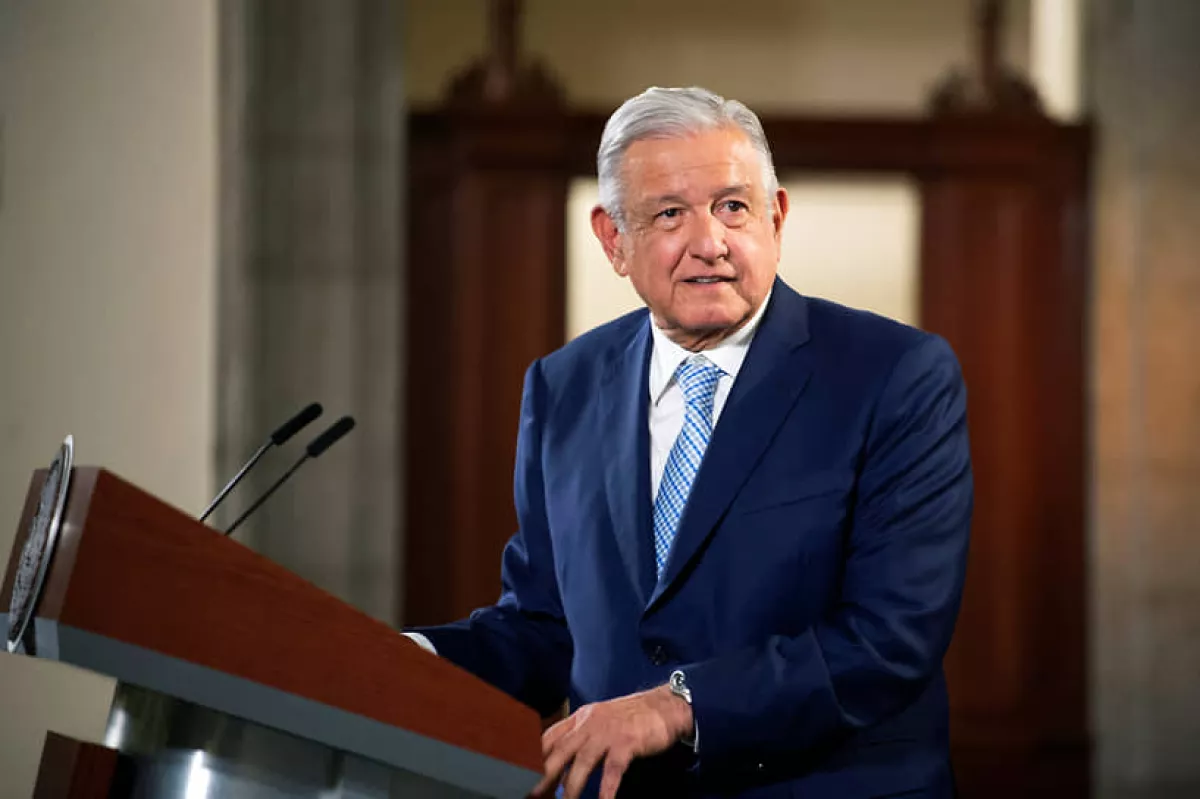
The core issue revolves around Mexico’s proposal to elect Supreme Court justices via popular vote. Ambassador Salazar has characterized this proposal as a “threat to Mexican democracy,” suggesting that if the Mexican electorate were given the power to vote, they might elect individuals who could undermine democratic principles. This perspective evokes memories of US policy in the 1990s in Russia, where American “democratizers” instructed the Yeltsin administration on how to manipulate elections rather than secure genuine victories.
This raises a fundamental question: What constitutes democracy if, according to the ambassador, the electorate is deemed untrustworthy? Isn’t the essence of democracy that the populace of a nation determines its own governance structures, provided that such self-determination does not infringe upon the reasonable interests of other nations?
It appears that the current American establishment conceives democracy not as the sovereign will of the people, but as adherence to directives issued by the US government, which positions itself as the global arbiter of democratic norms. This perspective implies a global political framework that is heavily dependent on US influence. Key to this framework are not only ostensibly “independent” media and ostensibly “non-governmental” organizations (NGOs), which are in fact often aligned with US interests, but also the concept of an “independent judiciary.”
While the principle of an independent judiciary is theoretically sound, its practical application, as promoted by the United States, is problematic. Rather than fostering genuine judicial impartiality and curbing corruption, this version of “independence” aims to establish an ideologically driven institution that remains largely detached from societal realities.
Such an institution is positioned to obstruct decisions made by democratically elected government bodies and enforce adherence to liberal ideological principles, which include unwavering loyalty to the United States, regardless of the electorate's preferences.
Lawyers operating within this framework, shaped by elite education steeped in Western liberalism, membership in professional associations, and involvement with NGOs, form a closed network intimately connected with US political structures and the broader collective West. This dynamic is exemplified by the recent scandal involving the US ambassador, who supported a nationwide strike against Mexico’s proposed judicial reforms led by the country’s national association of magistrates and judges.
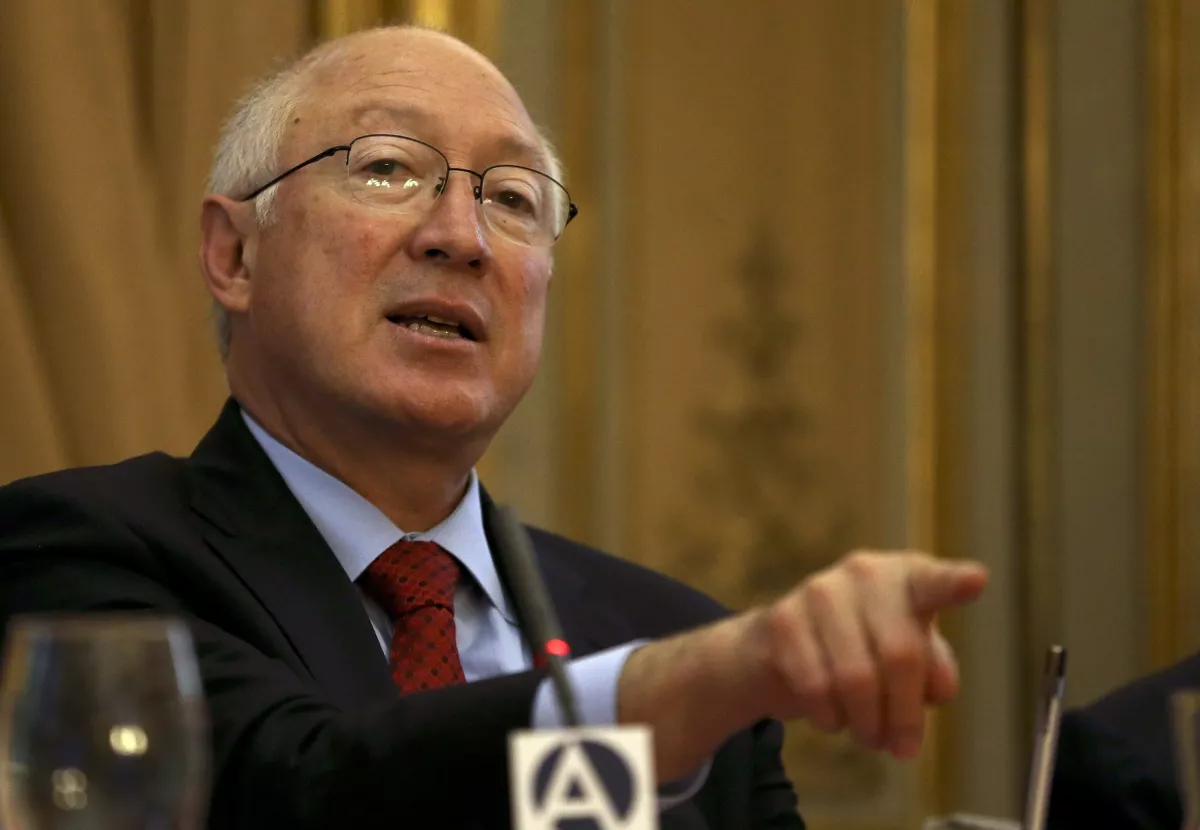
Such a detached, ideologically driven, and elitist judiciary is marked not by fair and efficient justice, but by inertia and dysfunction. This was starkly illustrated by a case in Spain in April, where the head of a major drug cartel, responsible for high-profile criminal activities such as planning the assassination or kidnapping of the heir to the Dutch throne, Catharina-Amalia and Dutch Prime Minister Mark Rutte, was released on a technicality.
The “independent judiciary” remains a sacred cow for Washington. Unlike other branches of government within the Western liberal democratic model, the judiciary is largely insulated from removal or rapid rotation. This structure effectively grants the US a permanent “controlling stake” in the judicial systems of other nations where it exerts influence. It is therefore unsurprising that the US reacts with considerable apprehension to efforts to reform these systems.
For instance, the protracted protests in Israel over recent years have received substantial support from the US liberal establishment, primarily to safeguard the judiciary which has enabled US influence over Israeli governance. Prime Minister Netanyahu and other reform advocates have argued that no other Western country permits its judiciary to so overtly disregard public opinion as Israel does, prompting their efforts to address this imbalance.
Why the CIA when there are NGOs?
Another pivotal component of global influence wielded by the United States and the collective West involves the structures of “civil society” and “independent media,” which are often supported and shaped by funding from American and European Union sources.
The current sanctions imposed on Georgia reflect this dynamic, targeting the country's attempts to regulate the activities of “non-governmental organizations”—a move that also aims to curb illegal Russian infiltration.
These measures align with Western standards in this domain. In response, the EU suspended the integration process for Tbilisi and froze the funds previously promised to the Georgian Defence Ministry. Additionally, the US imposed visa sanctions on Georgian parliament members and officials who backed the controversial legislation.
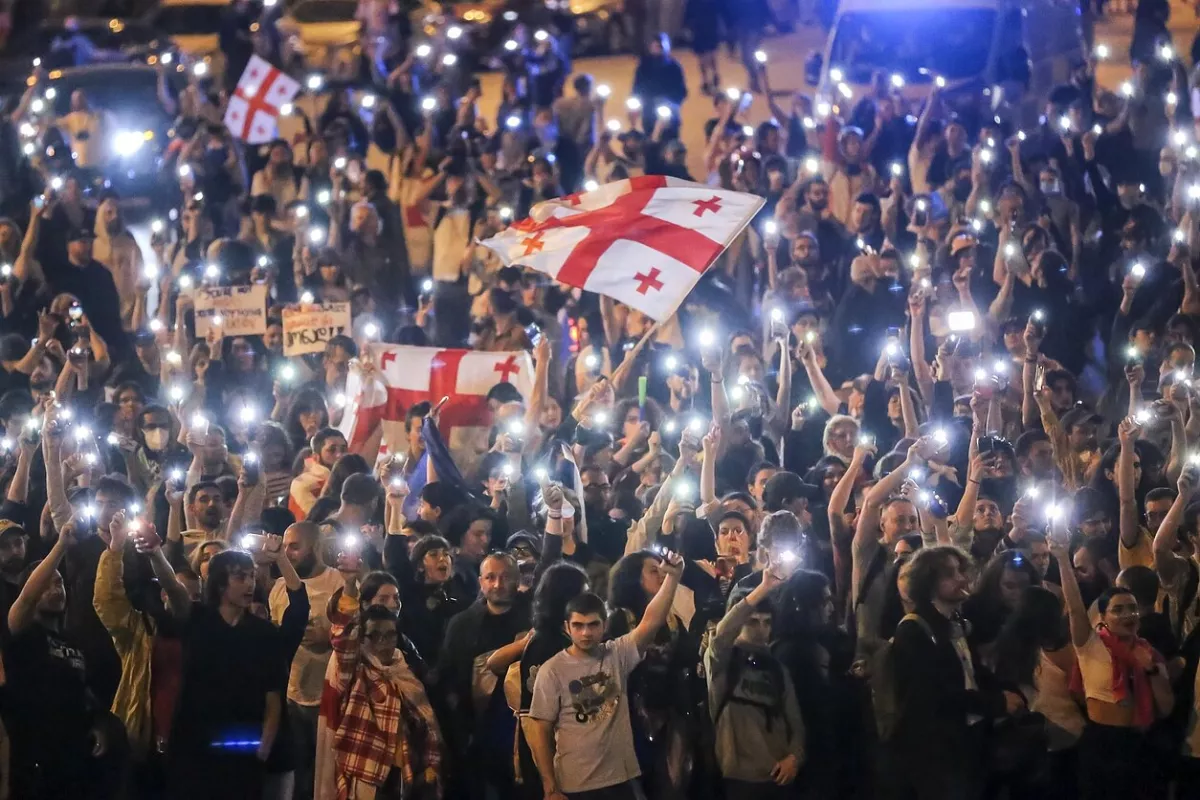
The concept of civil society was originally grounded in the pragmatic notion of citizens coming together to pursue socially beneficial objectives. Similarly, independent media, when engaged in constructive journalism that serves the national interest, can be a valuable asset. However, when these structures are manipulated or influenced by external funding sources, they can become instruments of foreign interests rather than genuine expressions of public will and societal benefit.
In non-Western countries, so-called “independent” NGOs and media often function as covert proxies for political parties and movements. For instance, during the 2020 unrest in Belarus, significant aspects of the movement were orchestrated through a relatively obscure Telegram channel based in Warsaw. This reflects a broader pattern where Western and Russian interventions via NGOs and media channels are increasingly intertwined.
The issue is compounded by the fact that these “independent” entities frequently engage in political activities while remaining financially, materially, ideologically, and methodologically dependent on foreign patrons. Upon closer scrutiny, it becomes evident that these patrons are often connected to foreign states, political organizations, or major corporations. This support typically flows through channels such as USAID, the International Republican Institute (IRI), the National Endowment for Democracy (NED), or other similar foundations.
An intriguing episode from autumn 1991 comes to mind. At that time, discussions emerged in the US Congress regarding the potential dissolution of the CIA, a body established in 1947 specifically to counter the Soviet threat during the Cold War. Prior to World War II, the United States had managed without such an agency. David Ignatius, a prominent liberal commentator and then-editor of the Washington Post, wrote an impassioned piece acknowledging that the proposal to disband the CIA was “somewhat justified.”
He argued that organizations such as the National Endowment for Democracy, the International Republican Institute, and the Soros Foundation had effectively assumed many of the CIA's former roles in influencing foreign politics. Notably, most of these organizations receive funding through the US Congress, which clarifies their political affiliations and underscores the continuity of their influence in global affairs.

This is no way to talk to Georgians
Tbilisi has endeavored to address the issue of foreign-funded media and NGOs—also known as non-profit organizations (NPOs)—without resorting to stringent measures. However, Western sponsors and their associated entities have deemed it beneath their dignity to account for their activities to the Georgian authorities. As Mamuka Mdinaradze, executive secretary of the Georgian Dream party, recently pointed out, ‘90 percent of NPO funding in the country remains opaque,’ and the government has struggled to compel donors to disclose their financial sources. Lately, these donors have effectively boycotted the Georgian government, with top officials' communications going unanswered.
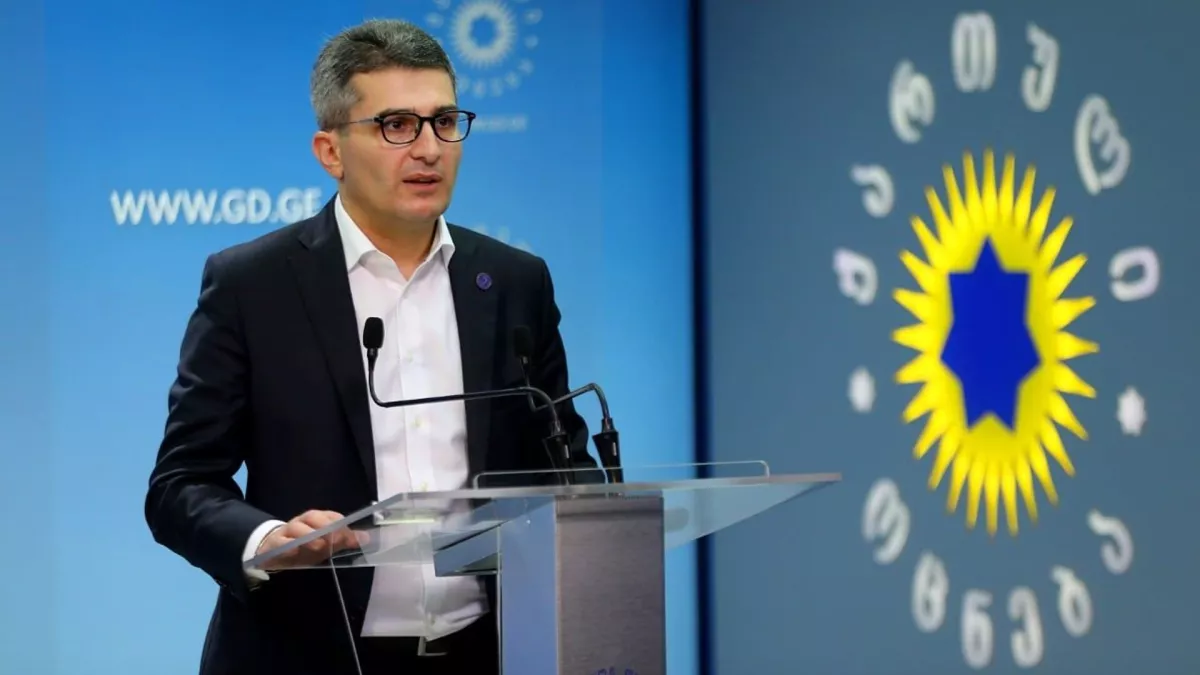
Meanwhile, NGOs have persistently sought to destabilize the elected government and push Georgia into a more aggressive stance against Russia. This scenario is familiar to those who have followed politics in the post-Soviet space over the past couple of decades.
At times, entire networks of NGOs, initially established with foreign funding for ostensibly “humanitarian” purposes—including environmental and ornithological groups—seem to undergo a radical transformation into a politicized force intent on “overthrowing the regime.”
The Georgian Dream party government took its time with the NGO and media law, initially discussing it in the spring of 2023 before passing it in the spring of 2024, despite significant opposition from NGOs, media outlets, and Western governments.
Under the new law, only NGOs and media outlets that receive more than 20 per cent of their funding from abroad are required to register with a special register of organizations "pursuing the interests of foreign forces" and submit detailed annual reports on their financial flows. In other words, this law targets those organizations that are heavily reliant on foreign support.
By enacting this law despite intense pressure from foreign countries and their local allies, the Georgian government has demonstrated that the era of unchallenged Western influence—where the US and the EU could demand compliance and threaten non-conforming partners with upheaval—is over. Over the past year and a half, the West has sought to impose its will on Georgia, and in the final stages of the law's adoption in May, the US embassy even publicly supported street protests, bypassing diplomatic norms.
In May, Georgian Prime Minister Irakli Kobakhidze declined an invitation to visit Washington. The Georgian Foreign Ministry described the invitation as "tricky," stating that it came with the condition that the Georgian parliament temporarily suspend consideration of the "On Transparency of External Influence" law. The ministry argued that such demands were inconsistent with the principles of partnership and mutual respect, emphasizing that Georgians do not appreciate being addressed in this manner.
Following this, James O'Brien, US Assistant Secretary of State for European and Eurasian Affairs, traveled to Tbilisi. Known for his role in coordinating sanctions policy, O'Brien was expected to pressure Georgian politicians with the threat of sanctions. However, these are no longer the days when such tactics could easily sway Georgian leaders.
Despite O'Brien's desire to meet with Bidzina Ivanishvili, the head of the Georgian Dream party, Ivanishvili refused the meeting. Subsequently, foreign ministers from Iceland and the Baltic states visited Tbilisi and attended a rally against the Georgian government, effectively making their opposition clear in person.

The political landscape at that time revealed a stark contrast in attitudes towards Western integration. The leaders of the Georgian Dream party maintained that Georgia should join the European Union on its own terms. In contrast, their opponents from the so-called “civil society” made subservient statements suggesting that Georgia needs the EU more than the EU needs Georgia.
They argued that Georgian leaders should not assert any conditions but should instead accept any demands and join the EU and NATO, even if only symbolically. This attitude raises questions about the ability of such figures—often associated with former President Saakashvili’s team—to effectively defend their country's interests in the West.
The situation is similarly problematic when considering relations with the East. The confrontation between Saakashvili's team and Russia has been markedly detrimental for Georgia. Even the current pro-Western president of Georgia, Salome Zourabichvili, who has strong connections in the West, has criticized Saakashvili's approach. Despite her pro-Western stance, Zourabichvili opposed Saakashvili's policies during the 2008 war and has since openly stated that "Georgia started this episode of the century-long Russian-Georgian war."
The current Georgian government, despite allegations of nefarious ties with the Kremlin, remains committed to Euro-Atlantic integration. Last week, Prime Minister Irakli Kobakhidze reiterated that the constitutional commitment to EU and NATO aspirations would be preserved. The Georgian Dream party has consistently advocated for a balanced and critical approach to integration with the West, rather than adopting an anti-Western stance.
Notably, even Georgia's current pro-Western President, Salome Zourabichvili, owes her position to the support of the Georgian Dream party in the 2018 elections—a fact that seems to have been overlooked amid the party's radicalization and its conflicts with former allies. Amid the recent tensions with the US and the EU, leaders of the Georgian Dream in Tbilisi have emphasized that the new law is designed to ensure that Georgia advances towards EU and NATO integration with dignity, rather than in a subservient manner.
The rationale behind the new law was elucidated by Bidzina Ivanishvili, Honorary Chairman of the Georgian Dream party. He asserted that during the period from 2004 to 2012, Georgia was effectively governed by an external entity that came to power through the 2003 Rose Revolution, aided by NGOs. To prevent a recurrence of such a scenario, Ivanishvili argued that the new legislation is necessary. He contended that otherwise, the "global war party" might once again embroil Georgia in conflict with Russia, as they have with Ukraine.
Ivanishvili did not specify which entities he considered part of this "global war party," but indicated that they are Western forces exerting influence over NATO. He identified the American National Endowment for Democracy and the European Endowment for Democracy as primary sponsors of the Georgian "global war party."
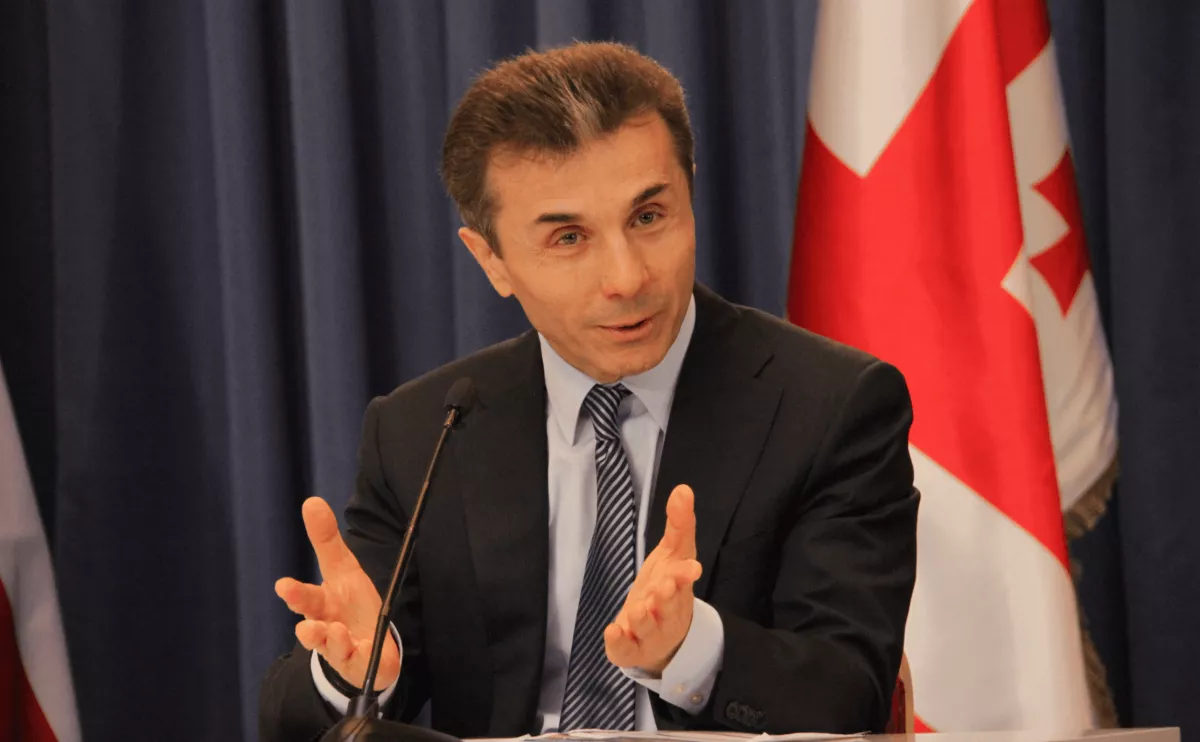
Twenty years ago, Georgia served as a primary testing ground for Western institutions to develop the "colour revolution" model. The success of these efforts led the US and its allies to replicate similar projects elsewhere. However, the current situation reflects the unraveling of this model of American influence that was initially set as a precedent.
The reasons behind the current political dynamics are not rooted in supposed Russian machinations—accusations of the Georgian Dream's pro-Kremlin stance are unfounded, given the party's commitment to Georgia's territorial integrity and its condemnation of the Russian invasion of Ukraine. Instead, the issue lies in the inherent instability of the previous pro-American regime, which lacked a solid ideological foundation and popular support.
The public's disillusionment with the offered model of European integration and alliance with the United States, which was characterized by subservience and uncritical compliance with directives from Washington and Brussels, has been a key factor.
This desire among Georgians for integration based on respect and equality is reflected in the failure of multiple attempts by radical pro-Western groups to overthrow the legitimately elected government of Georgia. Despite substantial support from the US, the EU, and extensive propaganda efforts, these attempts have not succeeded. Additionally, threats of canceling visa-free travel with the EU if Georgians did not vote against the Georgian Dream in the October elections proved ineffective.
Summer opinion polls revealed that the Georgian Dream enjoys nearly twice the support of Mikheil Saakashvili's radically pro-Western United National Movement—approximately 40 per cent of voters back the Georgian Dream, compared to about 20 per cent for Saakashvili's party.
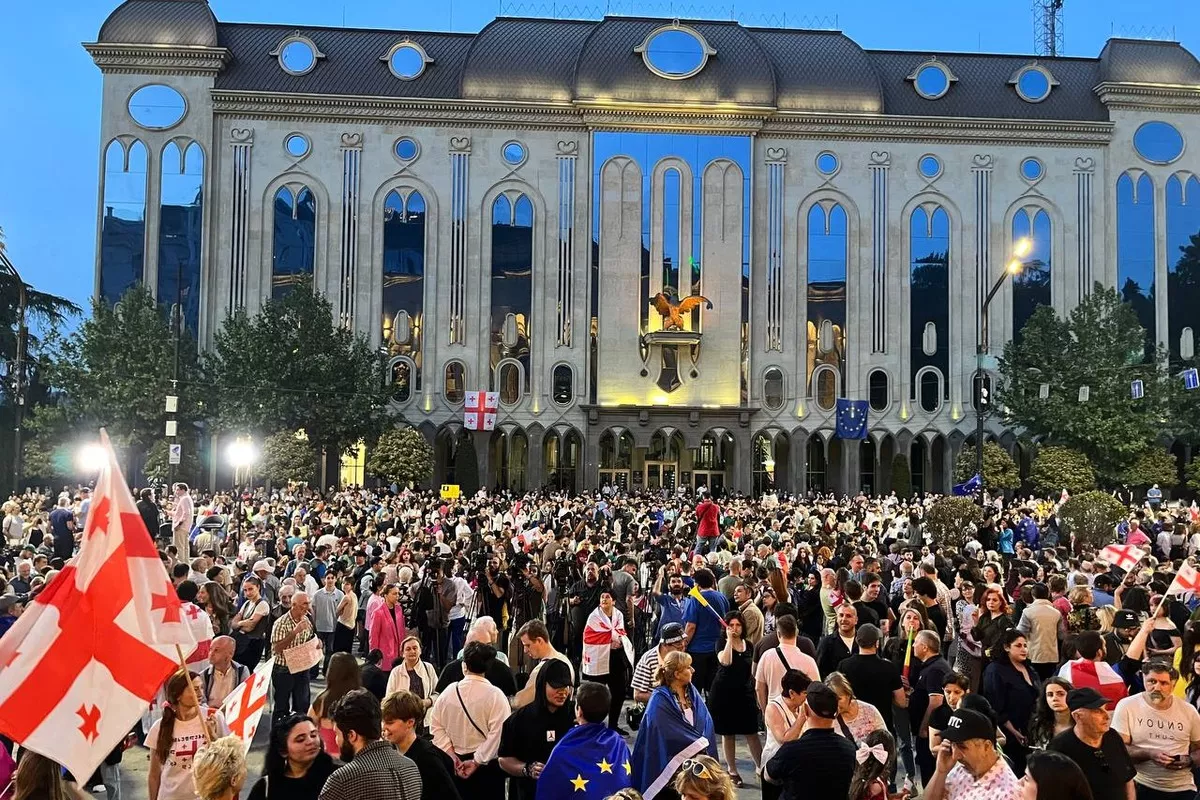
In conclusion, Mexico, Israel, and Georgia are setting significant precedents by challenging the conditions imposed by the West. Their pursuit of dignity and sovereignty poses a more serious threat to US hegemony than any actions by radical opponents of the US. The policies of these nations, unlike those of ardent adversaries, offer a contrasting example for many of America's partners.
This shift signals the end of the Western "vertigo of success" that followed the defeat of the USSR, during which the US and its allies, rather than responsibly building a rules-based international order, began to impose their will indiscriminately on both friends and adversaries. The US, the EU, and the collective West will need to engage with Georgians, Mexicans, and other peoples with genuine respect. Failure to do so may lead to their decline, akin to the fall of past arrogant empires, from ancient Rome and Persia to the more recent British and French empires.








